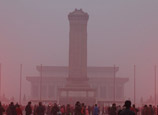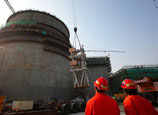
The country's money supply still remains at a reasonable level because growth has slowed continuously in recent years, analysts said Tuesday, in response to concerns that large issuance of money in China may push up inflation.
"Compared to Western countries, China is still a developing economy and is undergoing a growth period, requiring ample liquidity to support the healthy growth of its economy," Song Guoliang, a finance professor at the Beijing-based University of International Business and Economics (UIBE), told the Global Times Tuesday.
"China manages to keep its inflation rate at between 3 and 4 percent, indicating the country's money supply is still at a reasonable level. As the growth of money supply declines, inflation in China will not rise to an unacceptable level," Song said.
There have been concerns about China's large base of money supply, as central banks of major economies released their monetary data over the last two weeks.
China's central bank announced on January 10 that the nation's M2, a broad measure of money supply that covers cash in circulation and all deposits, grew by 13.8 percent year-on-year to 97.42 trillion yuan ($15.71 trillion) in 2012, making it the largest in the world.
The figure is 1.5 times the total M2 in the US, which stood at $10.4 trillion in 2012, and 1.3 times that in the euro area.
"It makes no sense to compare China's money supply with that of other developed economies because any country in the same growth stage as China would have a large base of money supply to bolster its economy," said Li Xunlei, chief economist at Shanghai-based Haitong Securities.

















 Buildings collapse after subsidence in S China
Buildings collapse after subsidence in S China


![]()
